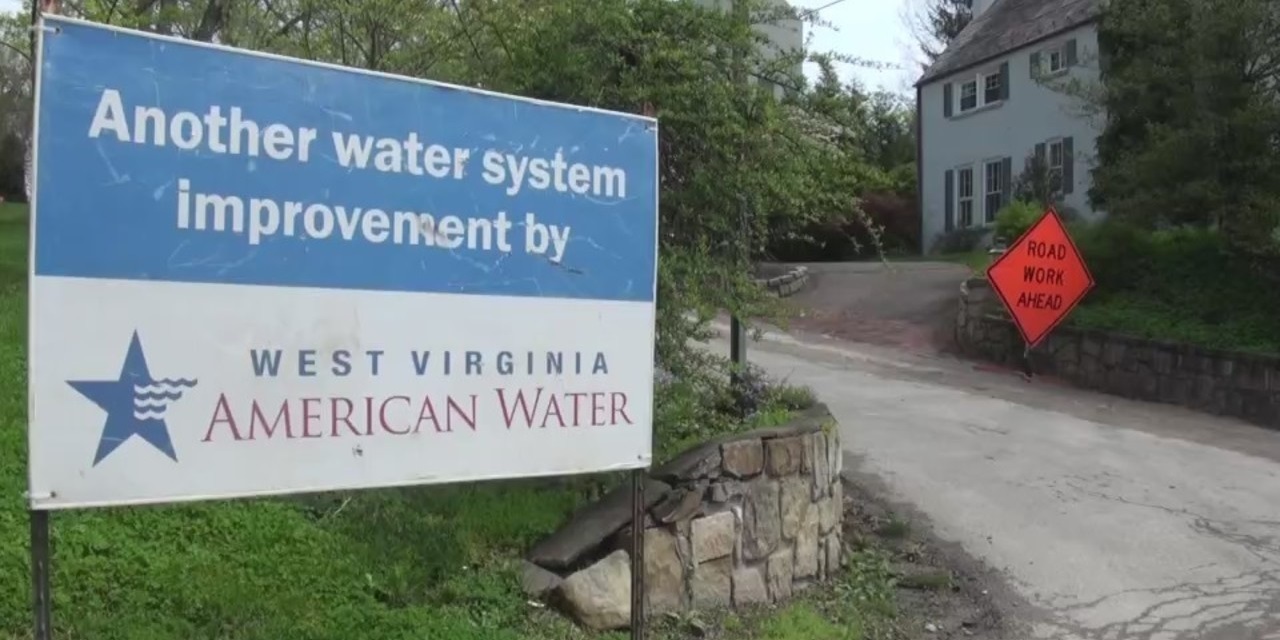CHARLESTON — The West Virginia Supreme Court of Appeals denied a writ of prohibition in an appeal involving West Virginia American water for the 2015 water leak.
L. Dante’ diTrapano, one of the attorneys who represent the respondents, Richard Jeffries and Colours Beauty Salon, said he was pleased with the court's decision and grateful the court denied an attempt to dismantle the respondents' class of customers, residents, and businesses that have now been certified twice in circuit court.
"We are anxious to get our 'notice' out to the class members and finally start litigating this case almost exactly eight years after the Dunbar main blew out in 2015," diTrapano said. "While sometimes the wheels of justice churn slowly, they inevitably reach the right result."

diTrapano
The court's opinion was released June 6. Justice Bill Wooton authored the majority opinion, while Justice Tim Armstead dissented and authored his dissenting opinion.
The opinion states that after careful review, the court found that WVAWC failed to demonstrate that the circuit court's class certification was clearly erroneous and denied the writ of prohibition.
"We find no clear error in the circuit court’s conclusion that all of respondents’ claims stem from and require common proof as to WVAWC’s alleged actions in failing to prevent or establish mitigation efforts against the water main break and the resultant service disruption—irrespective of the specific degree of any given customer’s disruption— thereby establishing commonality as to those issues which it certified for class resolution under Rule 23(c)(4)," Wooton wrote. "Further, to the extent that the class members were subject to the same event, precipitated by the same alleged conduct, which they seek to vindicate through the same theories of legal relief, we likewise find no clear error in the circuit court’s conclusion that typicality is present."
In his dissenting opinion, Armstead wrote that he would have granted the requested writ of prohibition.
"The water main break at the center of this case affected approximately 25,000 customers," Armstead wrote. "It is undisputed that the impact of the water main break varied greatly from customer to customer. Nevertheless, the circuit court certified the class 'with respect to the overarching common issues of whether [WVAWC] is liable for breach of contract and negligence, and for actionable violation of its statutory duties under the West Virginia Code.' Because Respondents’ claims require individualized, specific assessments of the water main break’s impact on each putative class member, class certification is not proper under Rule 23 of the West Virginia Rules of Civil Procedure. Therefore, I respectfully dissent from the majority opinion’s ruling."
Armstead wrote that he believed WVAWC satisfied the third factor in Hoover, and because of that, he would've granted the petition.
The original case was filed in 2017. In this case, a 36-inch diameter prestressed concrete cylinder pipe transmission main in Dunbar broke and was discovered on June 23, 2015. The initial repair attempts were unsuccessful, and repair efforts created other issues. Regular service was not restored until June 27, 2015. Then, another issue on June 29 created more problems for thousands of the same customers. Regular service was not restored again until July 1.
This interruption of service affected about 120,000 residents and businesses in Kanawha and Putnam counties.
Last July, Kanawha Circuit Judge Carrie Webster issued an order granting the class certification to the case. WVAWC felt that class certification was proper for the case.
“We continue to believe that class action is not an appropriate procedure to deal with any portion of the claims related to the 2015 water transmission main break in Dunbar,” the company previously told The Record. “Regardless of the ultimate resolution of the class action questions, West Virginia American Water will continue to vigorously defend its actions in response to these allegations.”
The plaintiffs are being represented by diTrapano, Stuart Calwell and Alex McLaughlin of Calwell Luce diTrapano in Charleston; Bunch of Bonnett Fairbourn Friedman & Balint in Phoenix, Arizona; and Kevin Thompson and David Barney of Thompson Barney in Charleston.
The attorneys listed as representing WVAWC are Thomas J. Hurney Jr., Alexandra Kitts and Samantha D’Anna of Jackson Kelly in Charleston as well as Kent Mayo of Baker Bott in Washington, D.C.
West Virginia Supreme Court of Appeals case number: 22-658
